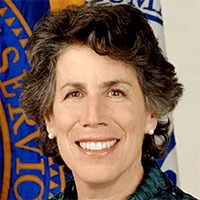
The Coalition for Epidemic Preparedness Innovations (CEPI) made a major change at the top last week, with the appointment of former Assistant Secretary for Preparedness and Response (ASPR) Dr. Nicole Lurie as its United States director.
Lurie has already been guiding CEPI’s emergency response efforts since 2017, including its COVID-19 response. She will remain a Strategic Advisor to the CEPI CEO while serving in her new role and continue to aid the global partnership in developing vaccines to halt future epidemics.
“CEPI has been at the forefront of the global response to COVID-19, making some of the earliest investments way back in January 2020 that kicked off the development of COVID-19 vaccines,” Lurie said. “CEPI has become an irreplaceable part of the global R&D ecosystem, not just for COVID, but for accelerating vaccine development against emerging infectious diseases that could become epidemics or even future pandemics. I look forward to helping CEPI build on the advances that have made in response to COVID-19 to transform the world’s ability to prepare and respond to epidemic and pandemic infectious diseases and ultimately create a future in which these pathogens no longer pose an existential threat to humanity.”
Before joining CEPI, Lurie served as a presidentially appointed ASPR for eight years within the U.S. Department of Health and Human Services (HHS). During her time there, she helped lead national responses to H1N1 and other infectious disease outbreaks. She also chaired the Public Health Emergency Medical Countermeasures Enterprise, a government effort to develop medical countermeasures against pandemics and other emerging threats.
“I’m delighted that Dr. Lurie has agreed to lead CEPI’s work in the U.S.,” CEPI CEO Richard Hatchett said. “She brings unparalleled experience and expertise in emergency preparedness and response that will be critical to fulfilling CEPI’s ambitious long-term plans to compress vaccine development timelines to 100 days and substantially reduce, and eventually eliminate, the risk of epidemic and pandemic diseases.”




